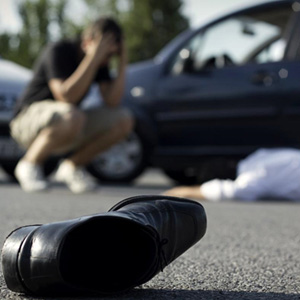436 58th Street, West New York, nj 07093
Car Accident Injury Claims In New Jersey
 What Can I Do If I Am Injured In A Car Accident And Can’t Go Back To Work?
What Can I Do If I Am Injured In A Car Accident And Can’t Go Back To Work?
When you’re injured in a car accident and cannot return to work, your options are limited. The first step is to review your car insurance policy and read the Personal Injury Protection (PIP) benefits section.
Car Insurance policies often have a provision under the Personal Injury Protection (PIP) part of the policy that has a lost wage component. However, it’s important to note that the lost wage reimbursement only offers coverage for a small amount on most policies.
Alternatively, you could turn to the state for temporary disability benefits. Unfortunately, these programs tend to be very limited and few other options exist unless you have a disability policy connected to your work.
What Should I Do If I Was Injured In A Car Accident And Am Worried About Losing My Job While I’m Recovering?
If you were injured in a car accident and are afraid of losing your job while you’re recovering, it’s understandable to be stressed. Unfortunately, from a legal standpoint, your options are limited in this situation.
First, it’s important to tell your employer about your situation and see if they’re sympathetic to your cause. If they’re not, your rights will ultimately be governed by whether you’re in a union or have a contract.
If you’re in a union, you’ll have a contract that protects your rights as a worker. This is called the Collective Bargaining Agreement (CBA) and it will often dictate the terms within which you can be fired. (Many CBAs state that you could not be fired due to an injury that prevented you from working, however, you must verify that this is true in each case.) Alternatively, being part of a union might mean that you have sick days and other benefits that permit you to take a leave while keeping your job – though possibly without pay.
The last possible option would be to apply for Family and Medical Leave Act (FMLA) benefits which would include your employer’s and doctor’s assistance. Taking leave using FMLA could put your job on hold while you are recovering. However, if you don’t qualify under the FMLA, you risk being at the hands of an unsympathetic boss and getting let go.
Otherwise, you’re considered an at-will employee, meaning an employer has the right to fire you for any or no reason. Because New Jersey is an at-will state; you can’t “no-call, no-show” and expect to keep your job. Not showing up to work would be grounds for termination – even if you cannot show up because you’re injured.
Is My Company Liable If I Got Into A Car Accident While Performing A Work Task In My Personal Vehicle?
It doesn’t matter whether you’re in a company or personal vehicle if you’re performing your job at the time of an accident. Your accident still “arose out of and in the course of your employment.” Under those circumstances, you are eligible for workers’ compensation benefits.
But suppose you were using your car for work and decided to take a separate trip. For example, say you’re to make a delivery for your boss and you decide, “I’m going to go down to the beach for the day and I’ll make the delivery on my way home.”
In this case, your private or personal mission would exempt you from any benefits under workers’ compensation. However, as long as you’re in the course of your employment doing work for your employer, you would be entitled to benefits.
What Should I Do If I Am Injured At Work?
Many companies have a specific procedure to report a work-related injury. Often, companies relay their workers’ compensation protocol to an employee when hired – whether verbally or in an employment manual.
If you’re not given a manual or any instructions to this end, the most important thing to do is immediately report the incident to your supervisor. Ensure that your manager or human resources department understands you are hurt as a result of your work.
Next, your employer should document your injury, whether on a company form or, at the very least, by taking a note. If you cannot report your injury right away, send an email as soon as possible to your boss detailing the following in writing:
- When you were hurt,
- Where you were hurt,
- How you were hurt,
- And any other important information.
You must make sure your work injury is reported. If your employer starts sweeping things aside in order to avoid dealing with the situation, you’re going to want a paper trail that shows you’ve acted diligently. This is crucial because it will make it very difficult for your employer to deny a worker’s compensation claim later.
For more information on Car Accident Injury Claims In New Jersey, an initial consultation is your next best step. Get the information and legal answers you seek by calling (855) 208-3650.


